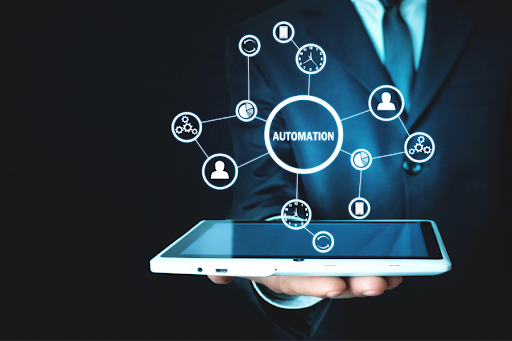Artificial Intelligence has changed rapidly from a futuristic concept to a necessity. It’s a revolution that enhances human capabilities but can raise concerns.
Artificial Intelligence (AI) is the creation of a computer system that can accomplish activities that require human intelligence. Apart from automating complex tasks, AI can also assist in data processing, pattern recognition, and even decision-making. On the other hand, the progress of AI in the IT field poses several problems such as data privacy and plagiarism. The underlying concerns have presented a sort of perplexed reaction to the topic that will be looked into in more detail in the following paragraphs in terms of advantages and disadvantages.

With the advent of AI, entire industries have been able to automate mundane and repetitive tasks and do them in a remarkably efficient and timely manner. The manufacturing, logistics, IT, and customer service industries have had significant gains from the use of AI systems, with lower operational expenditure and increased productivity as the outcomes.
AI technologies take advantage of the different devices to analyze massive amounts of data much faster than any individual or system. This allows businesses and people to make concrete steps within a short time. Predictive analysis, risk assessment, and strategic planning are functions of AI mostly utilized in healthcare, finance, and marketing.
Businesses use AI-driven chatbots, virtual assistants, and recommendation systems to provide customized experiences to consumers. AI enhances customer interactions, streamlines support services and increases customer satisfaction by offering precise and timely outcomes.
AI provides safety by enabling surveillance systems, fraud detection mechanisms, and cybersecurity tools. Autonomous vehicles and AI-assisted monitoring systems help in the reduction of accidents, ensuring better safety standards in various sectors.
Several traditional occupations have been largely made redundant due to the advent of automation and AI, which include clerical work and even factory jobs. The growing rate of unemployment due to workers being displaced from their jobs has caused massive re-training needs that no government seems ready to fulfill. Artists such as painters, writers, and voice actors are losing jobs due to the competition brought in by AI. The tech world is deep in a dangerous race where the all-important contest is AI vs. human and it raises debates as to whether machines could take a human’s work or not.
Intelligent monitoring: Towards AI-assisted monitoring for cloud services
AI might repeat biases present in training data and systems which could lead to unjust and meritless discrimination. When it comes to models of AI, ethical issues relating to transparency, privacy, accountability, and decision-making in the model remain an important challenge. The data that is processed is based on the information that is described, also known as a user’s perspective, which means the output given has a great chance of being misleading.
The use of AI-enabled surveillance for data collection raises issues related to breaches of privacy and intrusions into private sensitive data. Politically motivated cyberterrorism, usage of deepfake technology, and identity fraud are some of the categories where AI technology is misused. New technologies have given rise to novel tailored threats like AI-powered phishing, blackmail, defamation, and financial scams, posing new challenges to humanity while making all the existing laws redundant.
Decision-making and problem-solving dependent on AI can lead to a loss of creativity and critical skills. The adoption of AI could lead to humans being less skilled and more malleable, which could create rigidity and stifle innovation. It has made people less active and efficient as compared to their predecessors.
Investment in AI incurs massive expenditure on research, development, and even infrastructure. Less developed entities may find it impossible to implement AI solutions because of a lack of funding and technical know-how, which encourages less developed economies and entities to stay technologically behind. The rapid advancement in AI has caused a mess among the less technologically inclined people, which has resulted in a mismatch of skills and jobs.
AI is like a double-edged sword. It can bring great benefits, but it also comes with some serious challenges. To make the most of what AI has to offer and to reduce its downsides, we need to practice responsible use, stick to ethical standards, and make sure technology includes everyone. By finding a way to balance new ideas with responsibility, AI can be a strong force for good while still respecting our values and ethics.
https://blogtech.net/artificial-intelligence-transforming-the-future/
https://bbgworldnews.com/the-future-of-artificial-intelligence/
https://themindx.tech/the-artificial-intelligence-perspective/
https://dev.to/dbhatasana/the-future-of-ai-tools-trends-and-predictions-for-2025-and-beyond-130m
https://esoftskills.com/10-jobs-ai-will-redefine-by-2030-and-how-to-adapt/
https://ciobusinessworld.com/envisioning-tomorrow-the-evolution-of-artificial-intelligence/
Primary Keywords:
Secondary Keywords: